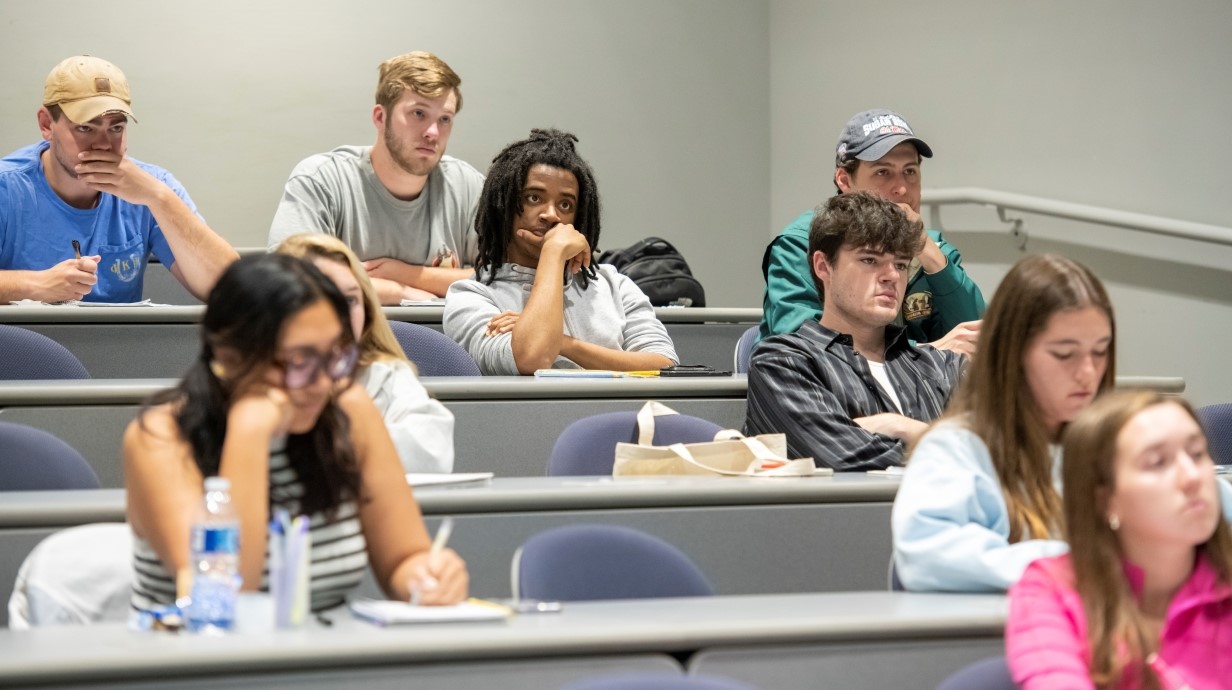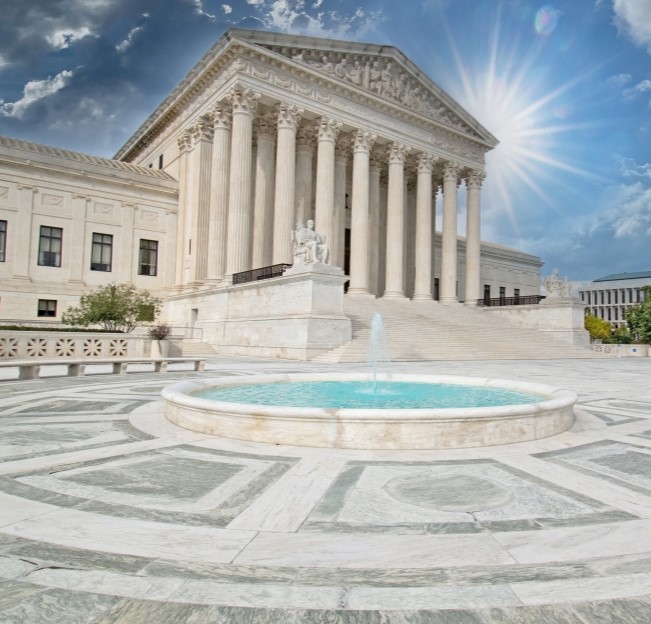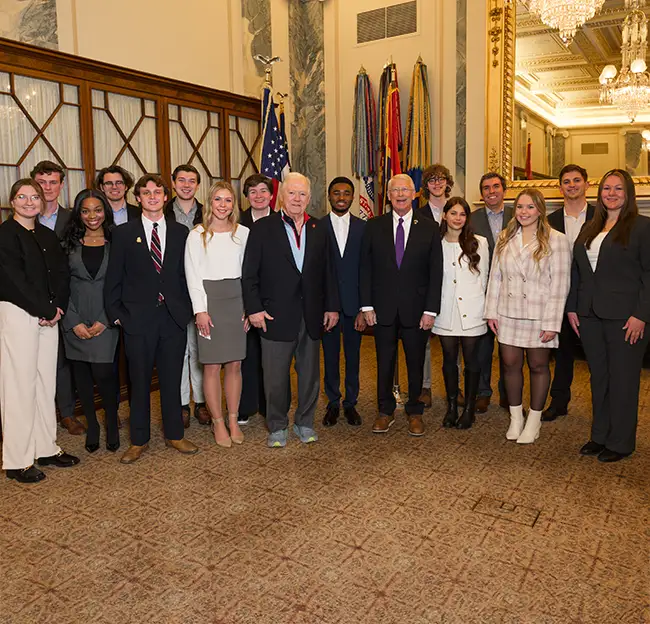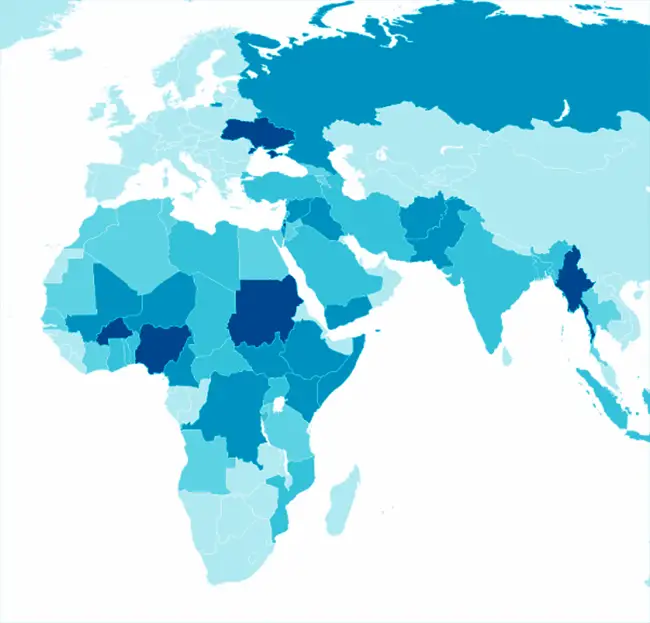Featured Courses
Learn about some of the advanced undergraduate political science courses and how they prepare students for the future.

Political Science Undergraduate Courses
The department offers undergraduate courses in the subfields of American Politics, Comparative Politics, and International Relations, as well as courses in research methods/data science.
- 100- and 200-level introductory courses
- 300-level advanced undergraduate courses
- 400-level courses such as seminars, directed readings, and Mock Trial team
- 500-level seminar-style courses that combine graduate students and undergraduate students, although there are separate expectations.
Below are a few examples of advanced undergraduate courses. See all political science course in the catalog.
American Politics

POL 307: Constitutional Law
Students learn about the rights and liberties afforded to citizens by the U.S. Constitution, historical interpretations thereof, and how the decisions of the Supreme Court have defined and shaped these rights and liberties. They examine some of the most prominent – and controversial – Supreme Court cases that have shaped American society, and topics such as freedom of speech, prohibition of discrimination, and the rights of the criminally accused.

POL 391: Applied Politics
Students get an insider's view of Washington's political scene and mingle with movers and shakers of American politics. They spend a week on campus to examine how political science can inform the real-world campaign environment. To strengthen the connection with practical applications, the course moves to Washington, D.C., where students met professionals, including elected officials, lobbyists, campaign managers, staffers, fundraisers, and more.
Constitutional Law Faculty Instructor
Studying constitutional law, particularly the rights and liberties enshrined in our constitutional framework, equips students with critical thinking skills essential for advanced studies and careers both within and beyond the legal field. Additionally, by understanding the principles that govern our society, students are prepared not only for future careers but also to be informed citizens, capable of thoughtful civic engagement and advocating for justice and equality.
Miles T Armaly
Associate Professor of Political Science
Comparative Politics

POL 321: Latin American Politics
While many states in Latin America are classified as democracies, there is immense variation in their stability, style, and performance. The course provides an understanding of the politics and development of Latin America along with a grounding in the history, structures, economics, and political cultures in the region. Students examine the concept of democracy as applied in LA; the role of the military; how political institutions affect the quality of governance; old and new actors in the political arena; neoliberal economic development; the resurgence of the ideological left; and several of the region’s more influential nations in-depth.

POL 322: Politics of Western Europe
This course provides an overview of several key topics in the study of Europe today, including institutions and policy-making processes, capitalism and the welfare state, European integration and the Euro, immigration, and the rise of populism. Students address questions such as: how do political institutions affect public policy? how do European economies work and prosper? how did Europe integrate with the European Union? how did the massive immigration into Europe impact politics? how and why have European party systems transformed? why did Russia invade Ukraine?
International Relations

POL 363: War in World Politics
This course explores the questions of when does politics become violent, when does violence become political, and how does the world react to violence when it occurs. Politics can often devolve into violence from international war and civil wars, genocide, and terrorism to human rights violations and repression. It can also include criminal violence, gender-based violence, and economic violence. Policies can also lead to inequalities that make violence more likely and can harm people in other ways. Students participate in a simulation to better understand the complex decision-making processes made by world leaders.

POL 398. Special Topics
Swords into Plowshares: International Organizations and Security Politics. This study abroad class travels to Geneva, Switzerland and Vienna, Austria, to learn about how international institutions work to manage arms control and disarmament, especially nuclear weapons. By visiting the United Nations office and other international organizations, students better understand how the UN and other institutions work with countries to manage their military power. They learn about how politics, law, science, and technology come together to enhance efforts at arms control and disarmament by exploring how states craft multilateral arms control treaties to foster cooperation.
Study Abroad Faculty Instructor
My focus is on where international conflict and cooperation come together. Charles Stotler [UM law professor] and I take students to Geneva, Switzerland, and Vienna, Austria, each May to observe proceedings at the UN and visit various nongovernmental organizations. We give them direct access to people who are working on critical issues – especially nuclear weapons and disarmament. We have built relationships with these people, and they talk to the students about their experience and how they got into their careers.
Timothy W Nordstrom
Professor of Political Science
